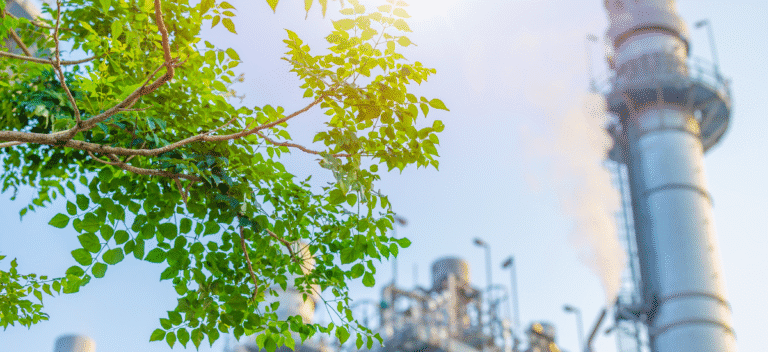As the ecological transition becomes a global imperative, Morocco and the European Union are strengthening their cooperation around green growth. On the occasion of the third edition of the Carrefour Vert, Matilde Ceravolo, head of the economy-environment section at the European Union delegation in Morocco, details the ambitions, mechanisms, and concrete projects that embody this strategic partnership. From the implementation of the CBAM to support for Moroccan SMEs, Europe is multiplying its levers to foster a decarbonized economy.
A cooperation that goes beyond financing
Present at the Carrefour Vert, the European Union is involved as a co-financer of a program led by five UN agencies. This commitment aligns with Brussels’ climate strategy, based on the belief that economic prosperity must go hand in hand with the preservation of natural resources. “We want to promote a more sustainable economy that generates green and quality jobs, especially for young people,” explains Matilde Ceravolo. The goal is to reconcile development with the transmission of a livable planet to future generations.
However, the EU’s action in Morocco goes far beyond budgetary support. “It’s primarily a political vision,” she reminds, based on strategic dialogue, technical cooperation, and then the implementation of concrete projects.
CBAM: more than a tax, a mechanism for climate justice
Among the key issues at the moment is the CBAM (Carbon Border Adjustment Mechanism), often mistakenly referred to as a “carbon tax.” Matilde Ceravolo wants to clarify: “It is not a tax on all imported products, but a balancing mechanism aimed at preventing industrial relocations motivated solely by the desire to escape EU environmental rules.”
The CBAM will fully come into effect in 2026, but a transitional phase has already started in January 2025. Affected companies must now declare their carbon emissions, without payment for the time being. Morocco, designated as a strategic partner, is actively participating in this phase as an observer, attending expert meetings to better understand the system and voice its concerns.
Ceravolo emphasizes the educational efforts made in Rabat over the past two years to clarify how the CBAM works. “Only certain industries are affected. Agriculture, for example, is not covered and will not be, as it does not fall within the scope of the European ETS system.”
At the same time, the idea of a carbon mechanism specific to Morocco is gaining traction. A project for a national carbon tax was even mentioned in the context of the 2025 Finance Bill, before being postponed. For the EU, this would be a virtuous lever: “It would allow the revenues generated to remain in Morocco while sending a clear signal to the economy,” she asserts, while praising the caution of Moroccan authorities in the face of such a structural reform.
Sustainable agriculture, renewable energies, circular economy: the pillars of the partnership
European support projects cover a wide spectrum, aligned with Morocco’s green vision. In agriculture, the “Terre verte” program, endowed with 115 million euros, supports the “Generation Green” strategy of the Ministry of Agriculture. It assists the ecological transition of the sector, from production to processing.
In energy, the Nassim program supports the development of wind energy, while significant funds are mobilized to strengthen the national electrical grid to accommodate more renewable energies. “We want to ensure that companies have access to less carbon-intensive, cheaper, and more stable energy,” summarizes Ceravolo.
The latest addition to the series, the “Green Economy” program, approved by the European Commission for an amount of 88 million euros, focuses on industrial decarbonization, the circular economy, and resource reuse. It aims to structure sectors where waste becomes raw materials again.
Concrete measures for Moroccan SMEs
The EU’s action also directly impacts entrepreneurs through mechanisms accessible via partner banks such as Bank of Africa, Crédit du Maroc, or Société Générale. The idea? To support companies wishing to engage in eco-responsible practices: purchasing less energy-intensive equipment, reducing plastic, installing recycling systems…
These programs include investment grants, technical assistance to build solid business plans, governance advice, and even financial guarantees. “We are here to secure risk-taking,” explains Ceravolo. All these tools are intended to transform ecological ambitions into tangible economic opportunities.


